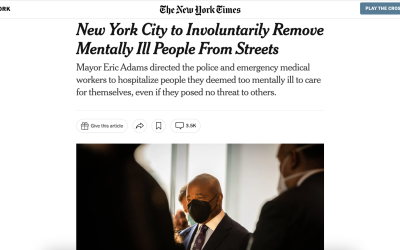My next editorial will cover social media moderation. I’m still working through my claims and making them stronger, but here’s my starting point.
Policy Claim: Big Tech should be allowed to moderate the content on their platforms as newspapers and other traditional media are able to do. (Recommends that an action should or shouldn’t be taken, “should,” “ought”, and “must” characterize this claim)
Value Claim: Social media companies are private businesses who are exercising their right to moderate content without government interference. (Declares something is good or bad/desirable or undesirable)
Causal Claim: Contradicting lower court rulings have led to a petition of the Supreme Court to determine whether the First Amendment prohibits states from forcing platforms to host speech and content that do not want to host. (One event was caused by another event that came before)
Definitional Claim: Content moderation isn’t as a deliberate silencing of speech, but rather a needed guideline as platforms grow in scale and scope. (Influence how an audience will perceive something and will respond – how something should be defined)
Definitional Claim: When someone signs up for a social media platform, you are agreeing to their terms and services, which also includes their guidelines for allowed content.
Factual Claim: The Republican party is targeting social media companies for “censorship” and “discrimination” for taking down hateful content and misinformation. (Statement of “probability judgment” – inferences rather than readily verifiable simple facts)
Factual Claim: Not allowing content moderation would contribute to the continued spread of hurtful content and misinformation.




One of the most under-appreciated lines in the Citizens United ruling is Kennedy’s assertion that the Court “must decline to draw, and then redraw, constitutional lines based on the particular media or technology used to disseminate political speech from a particular speaker.”
This line from that majority opinion seems to imply that the Court should treat newspapers letters to the editor and social media comment sections the same when it comes to political speech — which newspapers are at their discretion to gatekeep. It would follow that, being private publishers, social media platforms should also have the discretion to gatekeep political speech. Gatekeeping political speech is itself political speech carried out by private publishers.
Since political speech is afforded greater constitutional protection than basically any other form of speech, it will be interesting to see if the current Court expands on this line of reasoning by carrying out its implication that other, less protected forms of speech are also not subject to changes in their protected status depending on the medium they appear in. If these companies can, like newspapers, moderate political speech with the political speech of gatekeeping, there should be no reason they cannot do the same for categories of speech that have been less protected historically.
It will be very interesting to see where these cases go. If the current Court decides to, it could very starkly alter the media landscape by differing from Kennedy’s guidance.
Hey Kristen, I do think this is a good topic to bring up since there has been rising debate about the level of moderation on social media. I agree with one of your factual claims about how if we remove moderation on social media that it will continue the spread of rumors and hurtful content. Also, this might just be me, but what is Big Tech? Is it a corporation or just a general term? I think you could benefit from giving that a definitional claim (as to what it is). That way, readers could identify someone responsible for answering your policy claim. Lastly, are there any specific incidents that have occurred recently in relation to social media moderation? I think it would help to list incidents related to things like Snapchat, Instagram and even Pinterest. I don’t think you have to worry about making your claims stronger — I think they’re pretty solid. I would just include more specific statistics and examples.